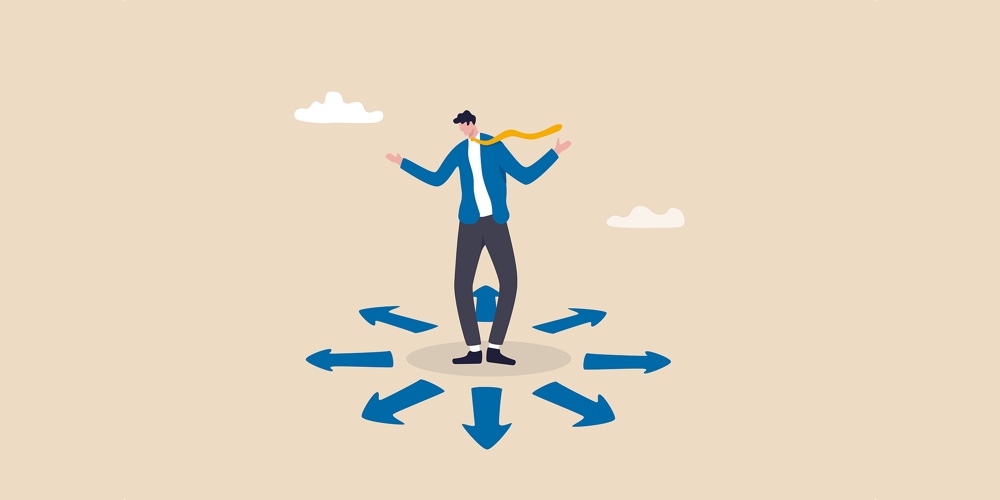Endless decisions, in a decision filled world. Where to start?

Recently a client asked me to talk with her team about decision making. Honestly, the assignment seemed a little stale – haven’t we talked about decision making enough? Don’t we have decision fatigue about decision making? But the more research I did, the more I realized that decision making remains relevant because we’ll never actually solve – or answer – how to make decisions easier, quicker, and more efficiently. The topic remains constant because the factors that influence how we make decisions (or why we struggle with them) continue to change. And as long as those continue to change, we’ll continue to have this conversation. So, as we continue to wrestle with decision making in the office – and at home – what should we consider?
Consider that you are not alone: Being the person charged with deciding can feel really lonely. But statistically, we know that everyone (and every company) struggles with decision making. McKinsey tells us that, on average, executives spend 40% of their time making decisions – and they believe that time is poorly used. So, if you’re struggling with an overabundance of decisions, it’s not just you – it’s all of us. Work has a tendency of adding structures and layers that make decisions more complex – not easier. Then add data. What was once promised as the golden ticket is actually making decisions harder, not easier to make. Research by Oracle, shows that the number of decisions we make has increased times 10 over the last three years. Combine that with the 86% of people who believe that the abundance of data – at home and at work – has made it harder, not easier, to make a decision. It’s decision overload in every aspect of our lives.
Consider your mental health: Earlier this month, we recognized World Mental Health Day. We must understand that life is work and work is life. The lines in between are blurrier than ever – especially as we navigate return to work, hybrid work options, and remote employees. For most of us, there really is no getting away from one and going to another. Decisions – all decisions – weigh on our mental health regardless of the setting. Companies need to understand the impact on employees, and in our personal lives we must recognize the number of decisions we are required to make daily. Navigating a post-pandemic environment continues to add to the challenge. In 2021, the American Psychological Association (APA) found that “US adults are struggling with decision making – especially millennials”. More than 1/3 of adults said that it was harder to make day-to-day decisions and major life decisions after the pandemic.
Consider how you name, organize, and manage: We’ve established that the decision-making issue is real and also unique to our current environments, but once we move past decision paralysis and through decision fatigue – what do we do? Research on making decisions actually has a few common themes that apply to both work and life decisions. First – name the problem. Be clear about what you’re being asked to decide and the role that you play. You can only eat the elephant bite by bite. Once you’ve narrowed down the problem to solve, get organized on what data you have (and what you need – hint, you don’t need all of the data) to solve it. Create a plan. Keep it simple. Those pro-con lists our parents and teachers encouraged – guess what, they still work. Scribbling on a whiteboard can be just as effective as the most advanced technology. Use what works for you.
Consider your own strength (because you’ve got this!): One of the biggest ahas in all of this research has been that, at the end of the day, it all comes down to you (and me!). There really is no magic bullet. That’s both stressful and freeing. Know your personality type and use those tried but true methods of Meyers Briggs or Strengthfinder to understand how you uniquely approach decisions. But remember, regardless of all the tools, data, and google searches, decisions get made because someone had the courage to make them. Be brave! Sometimes, it’s just the next right step. Other times, we only make progress by falling forward. But more often than not, we do the right thing, and we make the best decision that we know how. Decision making is hard, but we can do hard things. Trust yourself. You got it, I believe in you!





